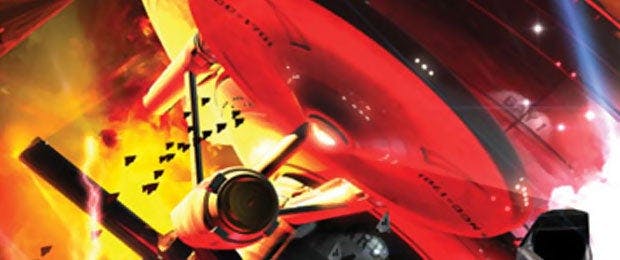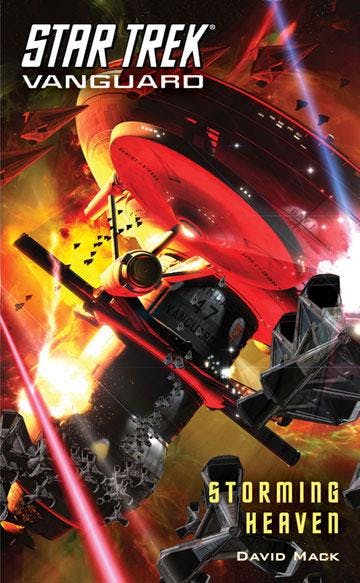Published Mar 26, 2012
David Mack On Vanguard Finale, Storming Heaven
David Mack On Vanguard Finale, Storming Heaven

The only thing harder than writing a good beginning is writing a good ending.
Since its inception, Star Trek Vanguard has always been special to me. As the author invited by editor Marco Palmieri to develop the series’ bible with him and then write the first novel, the saga has always embodied much of what I’ve loved about the original Star Trek series I grew up watching, and it represents my vision for what a modern version of Star Trek could be.
As the series progressed, and writing duo Dayton Ward and Kevin Dilmore became invaluable creative partners in its development, Vanguard became a true labor of love for all of us. Thanks to the one-upmanship pranks me and the guys played on each other in the form of unexplained cliffhangers, we always looked forward to tackling each new book in the series.
Our unusual approach to the series — alternating authorship, between myself and Dayton and Kevin — was something without precedent in Star Trek fiction, which had tended toward either single- or multi-author series. This new approach was part of what the series was about: new ideas, new creative directions, new approaches to a classic shared universe. That was part of my rationale for naming the series Vanguard. In addition to meaning the foremost division or advance guard of a military force, which Starbase 47 certainly was, the name also implied the idea of the leading movement in any field, especially in the artistic and intellectual realms. That’s what I wanted Vanguard to be — a bold, avant garde incarnation of Star Trek.
The final Vanguard novel, Storming Heaven, continues that tradition by representing another first in Star Trek fiction: a planned ending to a literary original series. The last thing we wanted was to overstay Vanguard’s welcome by churning out novels that did little to advance its overall narrative. In fact, after I finished the series’ fifth novel, Precipice, it had become clear to the three of us that the series had reached “critical mass.” It was time to begin our endgame.
It wasn’t that we’d written ourselves into a corner. From the beginning, the saga was planned to have a definitive ending, and its story was meant to run parallel to the events of the original series. In fact, the series’ bible indicated the saga could run as short as six books, but that it likely could not sustain more than ten volumes. Including the Declassified anthology of four novellas, the Vanguard saga comprises eight full-length books, plus Dayton and Kevin’s prequel eBook novella “Distant Early Warning,” which was published under the Star Trek S.C.E. banner.
So it is that after seven years we present the action-packed conclusion to the epic saga of Star Trek Vanguard. All the mistakes made by our characters come back to haunt them. Some of our key players will find the redemption they seek; others will have to live with the consequences of their actions. My hope is that when readers reach the story’s end, they’ll feel as if they’ve been given a glimpse into a secret chapter of Star Trek’s long, rich history, one that will give them a new appreciation for the era of the original series.
Most important, now that the saga’s over, I think that its interwoven themes — which all revolve around the struggle between liberty and security, or the conflict of conscience versus convenience — will become clear in retrospect. Because, as playwright John Webster wrote in The Duchess of Malfi, “Wisdom begins at the end.”

Star Trek: Vanguard: Storming Heaven will be released as a mass-market paperback and in a Kindle edition by Pocket Books on March 27. It will run 368 pages and cost $7.99; click HERE to purchase. To visit Mack's official site, click HERE. To check out his Facebook page, click HERE, and click HERE to follow him on Twitter. Also, be sure to check out his special Vanguard finale page by clicking HERE.
